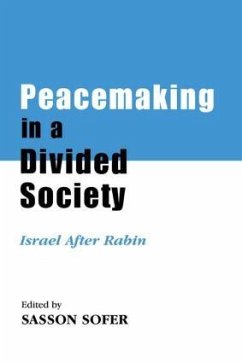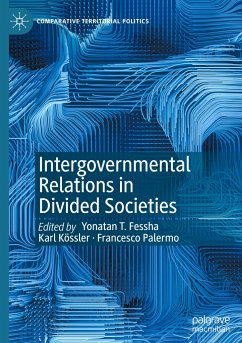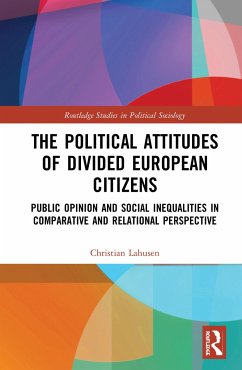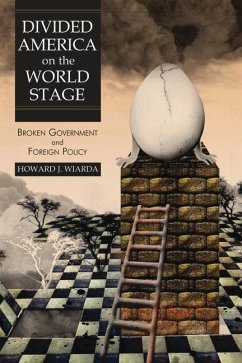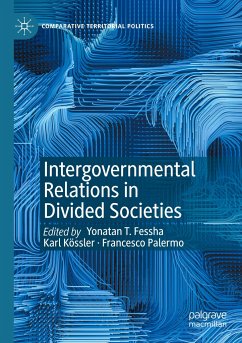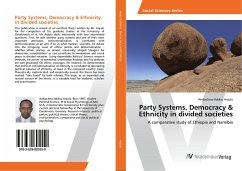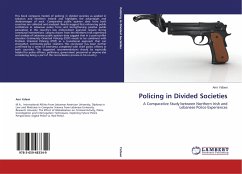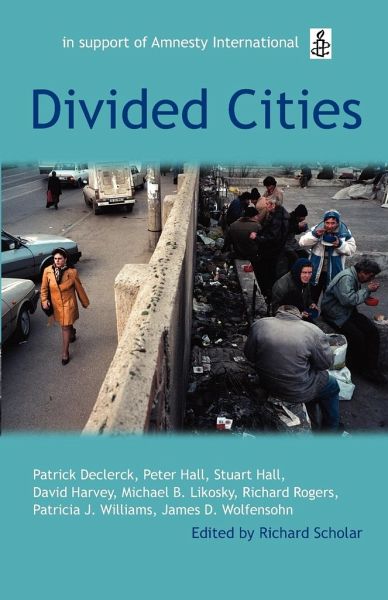
Divided Cities
The Oxford Amnesty Lectures 2003
Herausgegeben von Scholar, Richard
Versandkostenfrei!
Versandfertig in 1-2 Wochen
45,99 €
inkl. MwSt.

PAYBACK Punkte
23 °P sammeln!
Based on the influential Oxford Amnesty Lectures, this volume examines the forces shaping urbanization today and the divisions that threaten the world's cities. It consists of essays by eight leading urban thinkers and practitioners. Many contemporary issues are addressed, including the impact of globalization and migration on cities, the consequences of the 'war on terror' for urban policing tactics, the new development paradigm being adopted by international institutions in the
developing world, the challenges facing urban planners in the developed world, and the suffering of the homeless.
developing world, the challenges facing urban planners in the developed world, and the suffering of the homeless.
Cities, at their best, are cradles of diversity, opportunity, and citizenship. Why, then, do so many cities today seem scarred by divisions separating the powerful and privileged from the victims of deprivation and injustice? What is it like to live on the wrong side of the divide in Paris, London, New York, Sao Paolo, and other cities all over the world?
In this book, based on the internationally renowned Oxford Amnesty Lectures, eight leading urban thinkers argue about why divisions arise in cities and about what could and should be done to bring those divisions to an end. The book features essays by Patrick Declerck, Stuart Hall, David Harvey, Richard Rogers, Patricia Williams, and James Wolfensohn, with commentaries from Peter Hall, Michael Likosky, and others. The many contemporary issues that the book addresses include the impact of
globalization and migration on the urban environment, the consequences of the 'war on terror' for those living in cities, the new development paradigm being adopted by international institutions in the developing world, the need for a genuine urban renaissance in Britain and elsewhere, and the suffering of
the homeless.
These controversial and sometimes conflicting essays, linked by Richard Scholar's incisive introduction, aim to encourage and inform debate about the challenges to human rights in our increasingly urban world.
In this book, based on the internationally renowned Oxford Amnesty Lectures, eight leading urban thinkers argue about why divisions arise in cities and about what could and should be done to bring those divisions to an end. The book features essays by Patrick Declerck, Stuart Hall, David Harvey, Richard Rogers, Patricia Williams, and James Wolfensohn, with commentaries from Peter Hall, Michael Likosky, and others. The many contemporary issues that the book addresses include the impact of
globalization and migration on the urban environment, the consequences of the 'war on terror' for those living in cities, the new development paradigm being adopted by international institutions in the developing world, the need for a genuine urban renaissance in Britain and elsewhere, and the suffering of
the homeless.
These controversial and sometimes conflicting essays, linked by Richard Scholar's incisive introduction, aim to encourage and inform debate about the challenges to human rights in our increasingly urban world.





